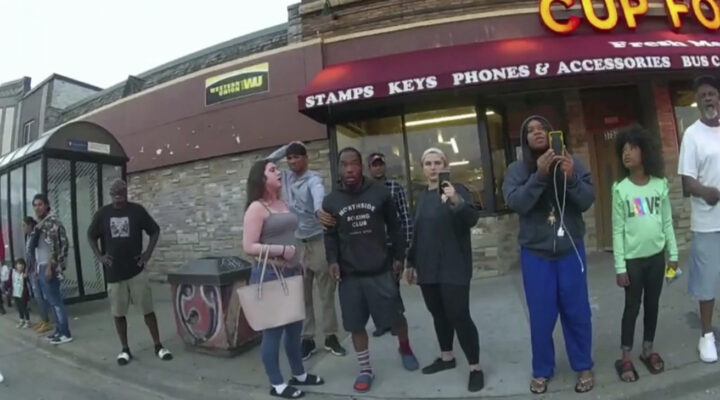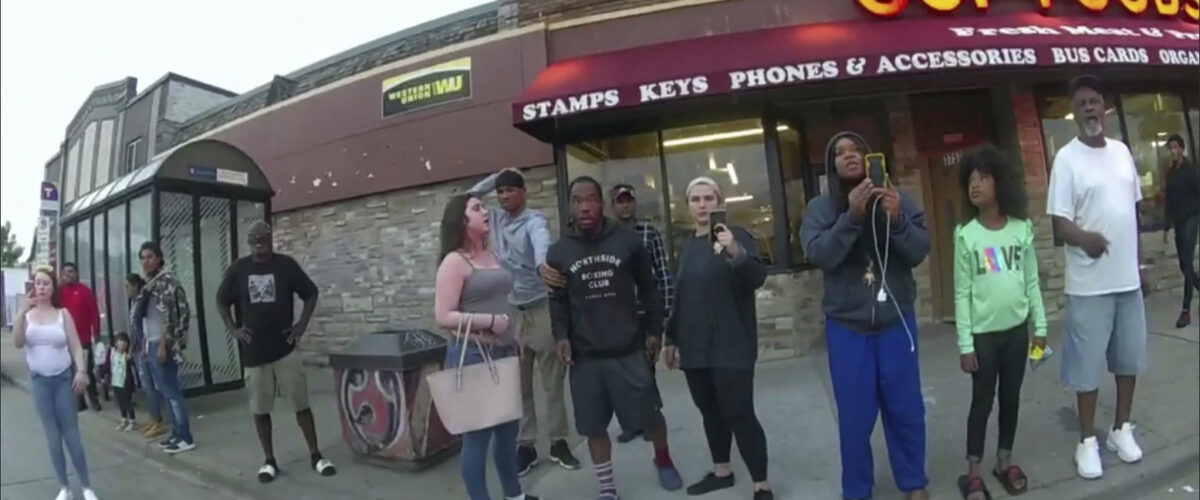May 25 was the two-year anniversary of the murder of George Floyd. It’s a date that can easily slip our minds, especially with the more recent stories of horror that have captivated our attention.
In the month leading up to the anniversary, I was committed not to forget the date. Part of my master’s thesis was about Floyd’s murder — I’d spent too much time researching his death to merely let the day pass like any other Wednesday.
I resolved to do something in memoriam or at least spend a portion of the day in prayer or contemplation. Then the day before the anniversary, 19 children and two adults were murdered at Robb Elementary School in Uvalde, Texas. This tragedy not only drew my attention away from Floyd’s death, it also desperately demanded memoriam, prayer and contemplation — not to mention repentance and immediate action toward policy changes.
Two weeks after the shooting, I still feel at a loss for the right words to use in response to such an atrocity. (I’m amazed by the pastors who offered powerful and pastoral sermons so quickly after such inexplicable injustice).
“Nearly 10 years after the shooting at Sandy Hook Elementary, policy changes created to avoid repeating this dreadful history are essentially nonexistent.”
But I know we’re all horrified by the slaughter of these children and, if we’re paying attention, horrified by the number of mass shootings since Uvalde. Every time a mass shooting occurs, advocates seeking to eradicate gun violence ask, “When will it be enough?” Is this the tragedy that will motivate people to take action and put an end to the vicious cycle? When will we as a society choose to take responsibility for these deaths, to repent, to turn away from this sinful path we’re on that worships violence and protects liberty over life?
Nearly 10 years after the shooting at Sandy Hook Elementary, policy changes created to avoid repeating this dreadful history are essentially nonexistent. The newest methods of addressing gun violence largely have not been focused on gun control or even on perpetrators of gun violence. It seems the biggest change made in the last decade was the widespread implementation of active shooter drills, which train children and students to turn out the lights, barricade the doors and hide under tables — placing the onus of this issue on potential victims rather than potential perpetrators or potential weapons of perpetration.
I’m reminded of Nelson Mandela’s 1995 quote, “There can be no keener revelation of a society’s soul than the way in which it treats its children.” Beneath a flashy red, white and blue cosmetic patriotism, America’s soul is tattered and reeking of moral corruption.
“Beneath a flashy red, white and blue cosmetic patriotism, America’s soul is tattered and reeking of moral corruption.”
In 2016, Brian Bilston wrote the poem “America is a Gun”:
England is a cup of tea.
France, a wheel of ripened brie.
Greece, a short, squat olive tree.
America is a gun.
Brazil is a football on the sand.
Argentina, Maradona’s hand.
Germany, an oompah band.
America is a gun.
Holland is a wooden shoe.
Hungary, a goulash stew.
Australia, a kangaroo.
America is a gun.
Japan is a thermal spring.
Scotland is a highland fling.
Oh, better to be anything
Than America as a gun.
Politically there is so much to be done to address this country’s deep-seeded problem of gratuitous violence, especially violence that harms the most vulnerable members of society. I, like you, have been reading articles, studying statistics and listening to the debates on the most effective policy changes. There is much to be done, and contacting your state representatives is always a good place to start.
However, rather than the national response, personally I’ve been thinking more about the needed response from the church. More specifically, I’ve been thinking about Darnella Frazier, the 17-year-old girl who recorded the longest video of George Floyd’s murder.
“I’ve been thinking about Darnella Frazier, the 17-year-old girl who recorded the longest video of George Floyd’s murder.”
Frazier and her 9-year-old cousin were on the sidewalk when they saw Derek Chauvin kneel on Floyd’s neck. Frazier ushered her cousin inside, knowing this was not something a child should see, before returning to the sidewalk and filming the nearly 10-minute-long video that millions of people later watched. At Chauvin’s trial, Frazier said she knew what she was seeing was wrong and the world needed to see it too.

Darnella Frazier
This profound act from a 17-year-old girl always reminds me of the women who stayed with Jesus at the foot of the Cross during his crucifixion. While many of the disciples looked away or ran away from the site of Jesus’ crucifixion, these women remained with him until the end. It would have been so easy for Frazier to flee the scene. But she didn’t. She stayed.
In the wake of the latest elementary school shooting, I’m thinking about Frazier, who chose to be present with Floyd even until the end. It’s been two weeks since the shooting. But let’s not flee the scene yet. The church has a responsibility not to look away from this tragedy just because the news cycle shifts. Reflecting on the murder of George Floyd, I can think of no better response from the church to the deaths of the 21 people lost in Uvalde than the response of Frazier.
For Frazier, remaining with Floyd until the end of his life was not something she even thought twice about. She felt a responsibility to stand on the sidewalk that day in part because she felt connected to Floyd. In her testimony at Chauvin’s trial, Frazier said, “When I look at George Floyd, I look at — I look at my dad. I look at my brothers. I look at my cousins, my uncles, because they are all Black. I have Black — I have a Black father. I have a Black brother. I have Black friends.”
After the shooting in Uvalde, some reporters have focused not only on parents of the children who died, but also parents who lost their children in other mass shootings. Some of these parents have intentionally reached out to provide comfort and support to the families in Uvalde. They are uniquely situated to understand the immense grief and anger of the moms, dads and guardians whose children were killed at school.
The women at the Cross, Frazier and these victimized parents chose to be present in tragedy and were able to remain in the wake of violence because of their connection to the victims. Many of us do not personally know someone killed in a mass shooting. However, the Christian story is not unfamiliar with tragedy, violence and the reality of suffering. And most Christians are not unacquainted with fear, loss, grief, pain and injustice in some form.
“The church is uniquely situated to attend to the immense grief and anger of this tragedy.”
It would seem, then, that the church is uniquely situated to attend to the immense grief and anger of this tragedy.
Many people think of chaplains as bringing the church and matters of faith to people in unique and often difficult spaces. But perhaps it’s helpful instead to imagine how the church can be the chaplain of the world, of the difficult spaces, showing up in violent contexts when others flee and providing a ministry of presence to those in pain. The work and ministry of Jesus and of the Spirit is to remain with people in moments like these. As such, remaining must be the work and ministry of Christians today as well.
There are so many policy changes that need to be made in response to the sin of rampant gun violence in our country. But for now, I hope the church can be like Frazier and step courageously into the role of remaining in the midst of injustice and grief.
Laura Ellis is project manager for Baptist Women in Ministry. She is a former Clemons Fellow with BNG and previously served in ministry with Safe Havens Interfaith Partnership against Domestic Violence and Elder Abuse. She lives in Waco, Texas, and earned a master of divinity degree from Boston University School of Theology.
Related articles:
When you’re tempted to forget about the latest school shooting, remember the embalmers | Opinion by Harold Ivan Smith
No one else is coming, so do something | Opinion by Hannah Coe


